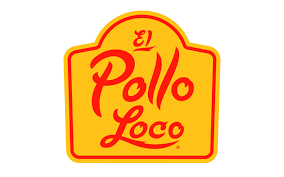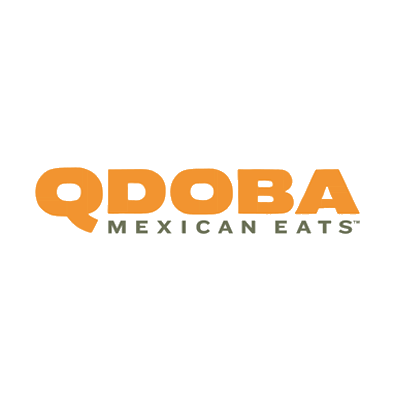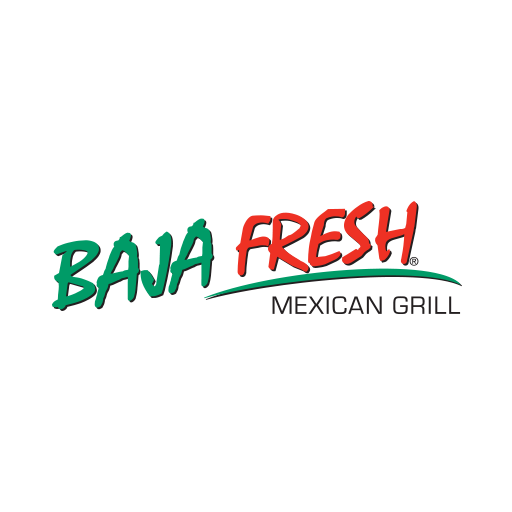El Pollo Loco Franchise in 2025: Costs, Fee & FDD
Discover everything you need to know about owning an El Pollo Loco franchise, from costs and fees to potential earnings. Learn why this established brand could be the right investment opportunity for you. Read more now!

Table of Contents:
El Pollo Loco is a popular quick-service restaurant that specializes in flame-grilled chicken, with its origins dating back to 1975. Founded by Juan Francisco Ochoa in Sinaloa, Mexico, the brand quickly made its way to the U.S., where it opened its first location in Los Angeles in 1980. It’s known for its unique blend of Mexican-inspired dishes, with a focus on fresh, hand-marinated chicken grilled to perfection. This blend of authentic flavor and speed of service has made El Pollo Loco a staple in the fast-casual dining sector, setting it apart from competitors.
At the core of El Pollo Loco’s menu is its signature fire-grilled chicken, served in a variety of ways, such as in tacos, burritos, and bowls. The restaurant also offers complementary side dishes like pinto beans, rice, and tortillas, along with healthier options like salads. The franchise appeals to health-conscious customers and those craving bold flavors, attracting a diverse customer base ranging from families to young professionals who value fast, nutritious, and affordable meals.
El Pollo Loco currently operates over 480 locations, with the vast majority in the United States. While predominantly located in the Western U.S., the franchise continues to expand across new markets. On an average day, thousands of customers visit El Pollo Loco locations to enjoy its fresh offerings. The brand’s reputation for consistently delivering high-quality meals has helped it maintain a strong presence in the quick-service industry.
Franchisees benefit from a robust support system, which includes comprehensive training programs, ongoing marketing support, and operational assistance. New franchisees undergo a thorough onboarding process with both classroom and in-store training, focusing on restaurant operations, customer service, and product quality. Additionally, El Pollo Loco offers ongoing franchisee support in areas like marketing, supply chain management, and technology to ensure smooth operations and help new owners thrive.
El Pollo Loco Franchise Insights
- El Pollo Loco currently operates 495 locations in the U.S., of which 323 are franchised units and 172 are corporate-owned.
- Franchisees are required to have a minimum cash investment of $249,738, with a total investment range between $780,000 and $2.66 million.
- El Pollo Loco serves over 147 million guests annually, showcasing its strong customer base and demand for its flame-grilled chicken.
- Founded in 1975, El Pollo Loco began franchising in 1980 and continues to actively seek franchisees today.
- Nearly 70% of El Pollo Loco’s menu items are considered healthier alternatives to typical fast food, tapping into the growing demand for nutritious, fast-casual dining.
El Pollo Loco Franchise Key indicators
Growth YOY (%)
7%
vs industry 0%
Total U.S. Franchised Units
323
3-Year Failure Rate
4%
vs industry 10%
Sales-to-Investment ratio
1.2:1
How much does it cost to open an El Pollo Loco franchise?
Understanding the potential investment size and capital requirements is crucial when considering opening an El Pollo Loco franchise. These financial commitments, including initial franchise fees, equipment costs, and ongoing operational expenses, impact the feasibility and profitability of the venture. Thoroughly evaluating these factors ensures that potential franchisees are prepared for the financial responsibilities and can make informed decisions about their ability to sustain and grow the business, ultimately contributing to long-term success.
Min & Max Investment
Opening an El Pollo Loco franchise involves several key costs, which are outlined in Item 7 of the Franchise Disclosure Document (FDD). You can see a breakdown of the costs to open a El Pollo Loco below from the most recent Item 7 below:
| Type of Expenditure | Minimum Investment | Maximum Investment |
|---|---|---|
| Initial Fee | $40,000 | $40,000 |
| Lease Payment | $7,000 | $25,000 |
| Building Improvements | $248,250 | $980,000 |
| Site Improvements | $150,000 | $564,000 |
| Market Study and/or Impact Analysis | $0 | $12,000 |
| Architectural Design & Engineering | $20,000 | $110,000 |
| Equipment, Fixtures, and Furnishings | $200,000 | $570,000 |
| Computer-based Cash Control System and POS | $15,000 | $60,000 |
| Training for POS and Restaurant Management | $1,000 | $7,000 |
| Travel & Accommodation Expenses | $2,000 | $25,000 |
| Opening Inventory and Supplies | $20,000 | $25,000 |
| Signs (including Indoor Digital Menu Boards) | $30,000 | $70,000 |
| Digital Communication Board | $1,500 | $2,500 |
| Lease Security Deposits | $5,000 | $10,000 |
| Insurance | $10,000 | $20,000 |
| Grand Opening Fee | $5,000 | $5,000 |
| New Restaurant Opening Support | $0 | $30,000 |
| Additional Funds (3 months) | $25,000 | $100,000 |
| Total Estimated Initial Investment | $779,750 | $2,655,500 |
Item 7 in the Franchise Disclosure Document (FDD) is the “Estimated Initial Investment” section. It outlines the total costs a franchisee can expect to incur when starting a franchise, including the initial franchise fee, equipment, inventory, real estate, and other startup expenses. This section is crucial because it provides potential franchisees with a detailed understanding of the financial commitment required, helping them assess affordability and plan their investment strategy effectively.
Required Capital
For El Pollo Loco, here’s what you can expect in terms of financial requirements:
- Initial Investment As shown above, the total estimated initial investment ranges from $779,750 to $2,655,500. This includes all the startup costs such as the franchise fee, real estate, construction, equipment, initial inventory, and additional funds for initial operating expenses. Assuming that you will finance your franchise investment, you should plan to have 20% of the total investment amount in the form of equity (cash) for the investment.
- Required Liquid Capital For similar quick-service franchises, the required liquid capital usually ranges from $500,000 to $1 million. This estimate aligns with the total investment range you’ve shared, as liquid capital covers immediate costs like rent, inventory, and initial working capital.
- Net Worth For a franchise like El Pollo Loco, it’s common for franchisors to require a minimum net worth between $1 million and $2 million. This ensures the franchisee has sufficient financial backing to manage ongoing operations and unexpected costs.
How much does an El Pollo Loco franchise owner make?
Calculating the salary of a El Pollo Loco franchise owner involves analyzing gross sales to determine total revenue, assessing operational efficiency to understand profit margins, and accounting for franchisor fees and additional expenses such as rent, utilities, and payroll. Effective management of these factors can significantly impact the profitability and financial success of a El Pollo Loco franchise owner. This comprehensive financial analysis helps estimate net profits, from which the owner’s salary can be derived. A clear understanding of these factors ensures accurate salary projections and financial planning for sustainable business operations.
El Pollo Loco Revenue & Gross Sales
Based on most recent analysis, El Pollo Loco franchises have a median gross sales of $2,064,260. This strong financial performance underscores the brand’s robust consumer demand and potential for significant revenue generation.
Which key factors impact the average revenue performance of El Pollo Loco franchisees?
The performance of U.S. franchisee median gross sales for El Pollo Loco in recent years can likely be attributed to several key factors. First, the ongoing trend toward health-conscious eating may have boosted demand, as El Pollo Loco offers healthier, grilled alternatives to typical fast food. Additionally, the brand’s continued focus on digital transformation, including mobile ordering and delivery services, has made it more accessible to customers seeking convenience. Lastly, inflation and rising food costs could have played a role, with menu price adjustments possibly driving higher gross sales despite steady or slightly decreased customer traffic. These factors combined likely contributed to the overall sales performance.
El Pollo Loco Franchise Operational Costs
When opening an El Pollo Loco franchise, key ongoing operational costs to consider include:
- Labor Costs Staffing is a significant expense, especially for quick-service restaurants. Wages, benefits, and potential overtime costs can fluctuate depending on location and labor market conditions.
- Food and Supply Costs Regularly purchasing fresh ingredients, particularly chicken and produce, will be a substantial, recurring cost. This includes sourcing, transportation, and any fluctuations in commodity prices.
- Utilities The cost of utilities, such as electricity, gas, and water, can be considerable due to the need for grilling equipment, refrigeration, and maintaining a comfortable dining environment.
- Maintenance and Equipment Repair Ongoing maintenance for kitchen equipment, such as grills, fryers, and refrigeration units, is essential to keep the restaurant running smoothly.
- Technology and POS System Keeping your point-of-sale (POS) system and any online ordering systems updated requires ongoing fees for software licenses, maintenance, and potential upgrades.
These are crucial to factor into your long-term financial planning when operating this franchise.
El Pollo Loco Franchise Fees
When investing in an El Pollo Loco franchise, it’s essential to be aware of the ongoing fees that impact your monthly operational costs. These fees are designed to support the brand’s overall performance and marketing reach, but they should be factored into your financial planning.
- Royalty Fee Franchisees are required to pay 5% of monthly net sales for all products sold at the restaurant. This is due on the 10th day after the end of each sales month.
- Advertising Fee An additional 5% of monthly net sales is charged for the advertising fund. In Los Angeles, this fee is slightly reduced to 4%, but still plays a critical role in maintaining El Pollo Loco’s brand visibility.
- Additional Fees There may be other potential fees related to market-specific adjustments or operational requirements depending on the location and market conditions.
These fees are essential to consider as part of your ongoing investment to ensure you’re prepared for all aspects of the business.
El Pollo Loco Franchise Earnings
Based on the most recent data, El Pollo Loco franchisees saw gross sales of approximately $2,064,260 for owner-operated units. After factoring in typical expenses, including operational costs and fees, the estimated earnings for owner-operators stand at roughly $300,000 based on industry margins.
This figure reflects the potential profitability of owning an El Pollo Loco franchise, with owner-operators able to generate a strong return on their investment through effective management and cost control. As always, individual results may vary depending on location, local market conditions, and how efficiently the franchise is run, but this estimate provides a solid benchmark for potential earnings.
How to Open a El Pollo Loco Franchise
To become an El Pollo Loco franchisee, here’s a general outline of the process from inquiry to opening your restaurant:
- Initial Inquiry You or your franchise specialist submits an initial inquiry basic information about your interest and background. You should also conduct thorough research on the franchise, including seeing all of the information available on the Vetted Biz franchise intelligence platform, including access to the most recent Franchise Disclosure Document (FDD).
- Franchise Application After your inquiry is reviewed, you’ll receive a franchise application. This form requires more detailed information about your experience and qualifications, and it helps the company assess whether you’re a good fit for the franchise.
- Discovery Day If both parties are still interested, you’ll be invited to a Discovery Day at El Pollo Loco’s headquarters. Here, you’ll meet key team members, learn more about operations, and get a closer look at what’s involved in running the business.
- Franchise Agreement Signing After Discovery Day, if you’re ready to proceed, you sign the franchise agreement and officially become a franchisee. This step also includes paying the initial franchise fee.
- Training and Site Selection Once the agreement is signed, you’ll begin an extensive training program that covers everything from daily operations to customer service. During this time, you’ll also work with El Pollo Loco to find the ideal location for your restaurant, which includes market research and site approval.
- Construction and Pre-Opening After securing the location, you’ll begin the construction or renovation process, working closely with the corporate team to ensure your store meets brand standards. You’ll also start hiring and training staff to ensure they are ready for launch.
- Grand Opening Once construction and pre-opening tasks are completed, your restaurant opens to the public! El Pollo Loco provides ongoing support, especially during the early days of operations, to ensure a smooth launch.
Pros & Cons
Pros
Established Brand: El Pollo Loco has a strong presence in the quick-service restaurant industry, especially in the Western U.S., giving you the benefit of brand recognition and customer loyalty.
Strong Customer Loyalty Program: The brand’s loyalty rewards program helps drive repeat business, which can enhance customer retention and increase average order size.
Strong Gross Sales Potential: With median gross sales reported around $2 million, there is significant revenue potential for well-run locations.
Cons
High Initial Investment: The total investment range from $780,000 to over $2.6 million might be a barrier if you’re looking for a lower-cost entry point.
Regional Limitations: The brand’s presence is stronger in certain regions, which could impact the ease of expansion or market saturation depending on your location.
Competitive Market: The quick-service restaurant industry is highly competitive, with numerous established players like Chipotle, Chick-fil-A, and other regional brands that may challenge your ability to capture market share.




